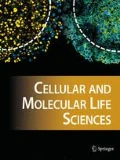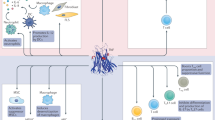Abstract.
Excess levels of tumor necrosis factor-α (TNF-α) have been associated with certain autoimmune diseases. Under the rationale that elevated TNF-α levels are deleterious, several anti-TNF-α therapies are now available to block the action of TNF-α in patients with autoimmune diseases with a chronic inflammatory component to the destructive process. TNF-α antagonists have provided clinical benefit to many patients, but their use also is accompanied by new or aggravated forms of autoimmunity. Here we propose a mechanistically based hypothesis for the adverse events observed with TNF-α antagonists, and argue for the opposite therapeutic strategy: to boost or restore TNF-α activity as a treatment for some forms of autoimmunity. Activation defects in the transcription factor nuclear factor κB leave autoreactive T cells sensitive to TNF-α-induced apoptosis. Treatment with TNF-α, by destroying autoreactive T cells, appears to be a highly targeted strategy to interrupt the pathogenesis of type 1 diabetes, lupus and certain forms of autoimmunity.
Similar content being viewed by others
Author information
Authors and Affiliations
Corresponding author
Additional information
Received 14 Jaunary 2005; received after revision 28 April 2005; accepted 6 May 2005
Rights and permissions
About this article
Cite this article
Kodama, S., Davis, M. & Faustman, D.L. The therapeutic potential of tumor necrosis factor for autoimmune disease: a mechanistically based hypothesis. CMLS, Cell. Mol. Life Sci. 62, 1850–1862 (2005). https://doi.org/10.1007/s00018-005-5022-6
Published:
Issue Date:
DOI: https://doi.org/10.1007/s00018-005-5022-6




